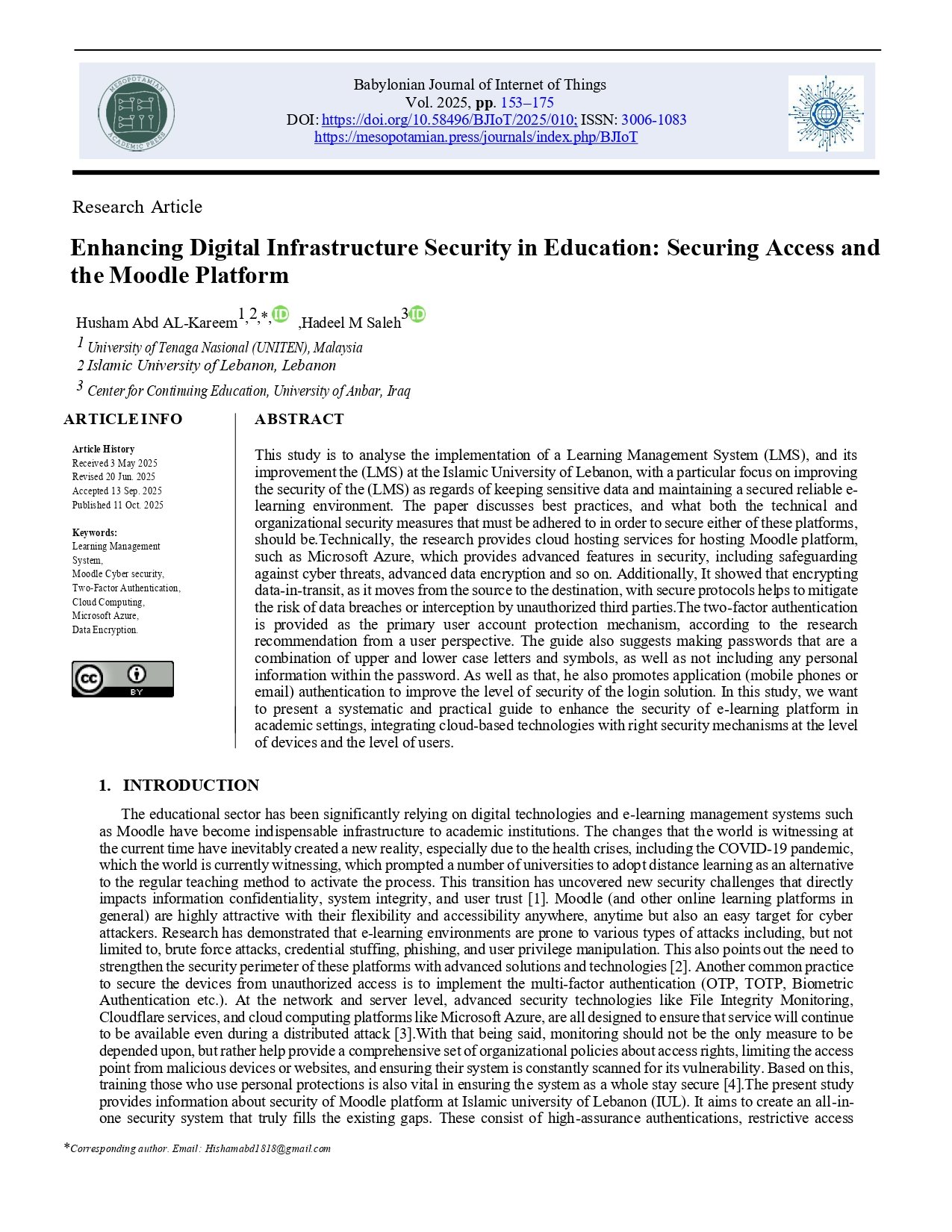Enhancing Digital Infrastructure Security in Education: Securing Access and the Moodle Platform
Main Article Content
Abstract
This study is to analyse the implementation of a Learning Management System (LMS), and its improvement the (LMS) at the Islamic University of Lebanon, with a particular focus on improving the security of the (LMS) as regards of keeping sensitive data and maintaining a secured reliable e-learning environment. The paper discusses best practices, and what both the technical and organizational security measures that must be adhered to in order to secure either of these platforms, should be.Technically, the research provides cloud hosting services for hosting Moodle platform, such as Microsoft Azure, which provides advanced features in security, including safeguarding against cyber threats, advanced data encryption and so on. Additionally, It showed that encrypting data-in-transit, as it moves from the source to the destination, with secure protocols helps to mitigate the risk of data breaches or interception by unauthorized third parties.The two-factor authentication is provided as the primary user account protection mechanism, according to the research recommendation from a user perspective. The guide also suggests making passwords that are a combination of upper and lower case letters and symbols, as well as not including any personal information within the password. As well as that, he also promotes application (mobile phones or email) authentication to improve the level of security of the login solution. In this study, we want to present a systematic and practical guide to enhance the security of e-learning platform in academic settings, integrating cloud-based technologies with right security mechanisms at the level of devices and the level of users.
Article Details
Issue
Section

This work is licensed under a Creative Commons Attribution 4.0 International License.
